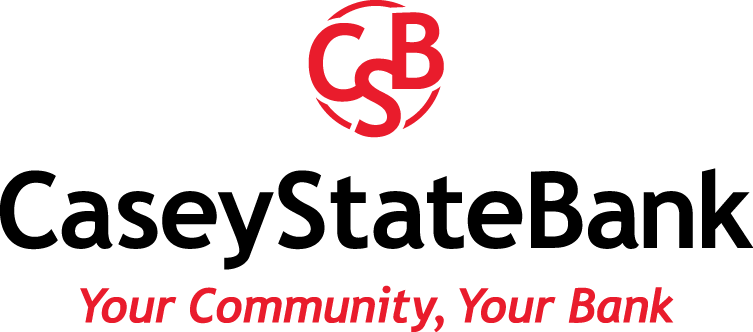Glasses, pencil, cell phone, ear buds, and succulent
Casey State Bank
Blog
Secure your Accounts: Tips for Mastering Password Safety
Passwords unlock our lives today. They serve as the gateway to personal, professional, and financial information. With our passwords, we open up our accounts to connect with others. In the age of digital banking, your password is the key to accessing and managing your finances.
At Casey State Bank, we take security seriously. We do everything we can from the inside out to keep your account information secure. We want to empower you to do everything you can to protect your accounts from the outside in—and that starts with mastering password safety.
Password Safety
Password safety is an essential part of safeguarding your accounts from cybercriminals. Over 80% of confirmed instances of cyber criminals are related to weak, reused, or stolen passwords. One way to optimize password safety is by using passphrases. Passphrases are long, complex sequences of words and characters that make them hard for criminals to guess but easy for you to remember. Another important step to take when improving password safety is to use different passwords or passphrases for each account. Using a password management application can help you keep track of your passwords, which are sure to add up quickly if you use a different one for each account.
The final and most crucial step in optimizing your password safety involves multi-factor authentication. Multi-factor authentication is a security step that requires two or more verification factors to access an account. For example, your password is the first authentication factor. The second may be receiving a unique code sent to your cell phone.
More Tips for Passphrases
Length vs. Complexity
Focus on length rather than complexity. Passwords should be a bare minimum of eight characters, but the longer the passphrase is, the harder it is for criminals to guess your login credentials and hack into your account. Passphrases can include punctuation, spaces, lowercase letters, or uppercase letters. Some unique ideas may include a line from your favorite book or song, as long as it isn’t a famous, well-known line or one you openly share on social media as a “favorite quote.”
Recommended lengths for passwords or passphrases:
- Ten characters for non-critical applications
- Sixteen characters for sensitive applications like financial, healthcare, and primary email accounts.
Letters and Characters
Passphrases are restricted to the policy of the application for which you are creating the password. For example, some applications require uppercase letters, lowercase letters, and a special character, while others may not have any special characters or letter requirements.
Memorable Passphrases
Make your passphrase something easy for you to visualize. Using an acrostic can help you remember a phrase. For example, use each letter in your name to come up with a passphrase.
Protect Your Password
Don’t allow anyone to watch you enter your passwords into your accounts on your computer or mobile device. It is vital to ensure your screen and keyboard are hidden from view. Keeping your password private is the most critical step to ensure your account security. Sharing your password is equivalent to sharing your account with someone—it gives them access to see your account and take action on it. Not protecting your password is like leaving your key in your parked car. If someone wants to, they can steal the car and everything you have in it.
Committed to Safeguarding Your Financial Information
Life takes place in person, but managing life takes place online in today’s digital world. The importance of using password safety tips for internet safety cannot be overstated for online banking safety and other accounts. Your passwords guard your identity, financial information, accounts, and many other aspects of your life. At Casey State Bank, we are committed to safeguarding your financial information and accounts. We also recognize the power of education in helping you stay safe online. Check out our online resource full of educational videos for more information about protecting yourself online.


